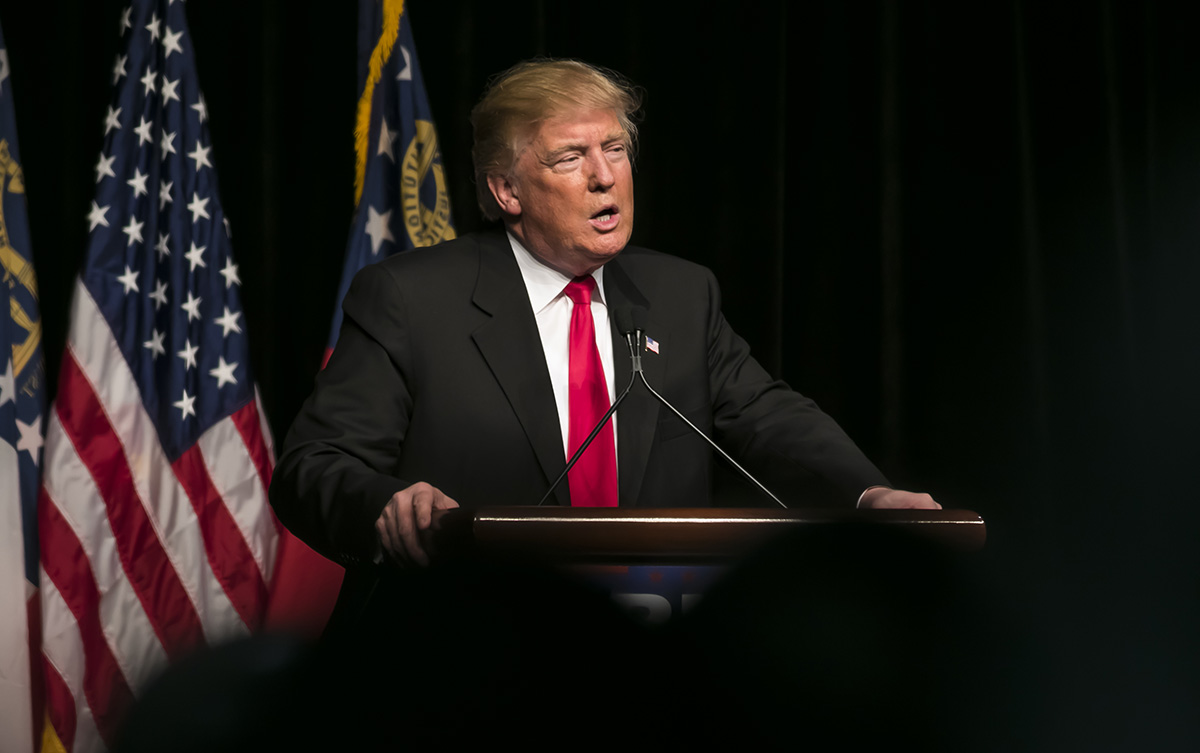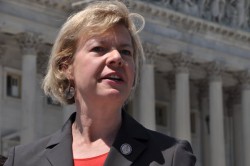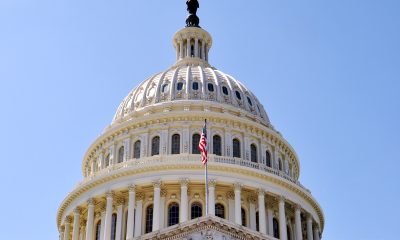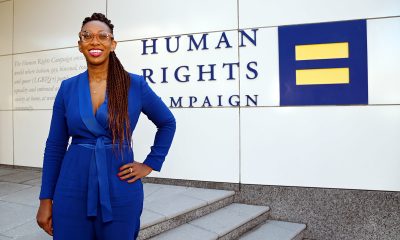National
Baldwin front-runner to claim Dem nomination for Senate
But lesbian lawmaker likely faces stiff challenge in general election

Claiming the Democratic nomination to become the next U.S. senator from Wisconsin — and the first openly gay U.S. senator — just got easier for Rep. Tammy Baldwin (D-Wisc.) now that a potential major opponent has announced he won’t seek office in 2012.
Former U.S. Sen. Russ Feingold, who lost his seat during the Republican wave in the 2010 election, said in a message to supporters last week that he wouldn’t run for office in 2012.
“I am grateful for the friendship and support of so many fellow Wisconsinites who suggested I consider running for statewide office in the coming months,” Feingold wrote. “While I may seek elective office again someday, I have decided not to run for public office during 2012.”
Feingold, who since his departure from the Senate founded the group Progressive United, said he instead wants to devote his time to teaching at Marquette University Law School and working to overturn Citizens United, a 2010 U.S. Supreme Court decision allowing unlimited corporate funding for independent political broadcasts in political campaigns.
He was seen as the favorite to win the Democratic nomination — and likely the seat itself — for the seat Sen. Herb Kohl (D-Wisc.) will vacate upon his retirement at the end of next year. With Feingold out of the picture, political observers say Baldwin, who has said she’s “very likely” to pursue a run for Senate, is the front-runner to claim the Democratic nomination. The only out lesbian in Congress, Baldwin has been serving in the U.S. House since 1999.
In a statement to supporters, Baldwin praised Feingold for being what she called “one of the true legends of Wisconsin’s progressive tradition” and said she expects his “political courage” to continue to impact Wisconsin and the country for years to come.
“Lots of you have asked me whether Russ’ announcement will influence my plans,” Baldwin said. “As I’ve said, I’m seriously exploring a race for the U.S. Senate — and I’ll have more to say about that soon. But whoever represents our party in that important election should have the same progressive principles — and the same courage to do what’s right — that Russ Feingold has displayed every day of his distinguished career.”
Baldwin was expected to hold off on announcing any decision to run for U.S. Senate until after the Wisconsin special elections, which took place Aug. 9, and after Feingold revealed his intentions for 2012. Now that the election is over and Feingold has announced his decision, Baldwin is widely expected to make an announcement just after Labor Day.
Denis Dison, spokesperson for the Gay & Lesbian Victory Fund, which has been pushing Baldwin to run for the Senate, said Feingold’s announcement is “encouraging.”
“We’re still assuming that there is going to be a competitive primary; somebody is going to pop up,” Dison said. “But I think if her decision had much to do with whether or not Feingold was running, obviously this is a much more encouraging environment and atmosphere to run in.”
Larry Sabato, a political scientist at the University of Virginia, said via e-mail that Feingold’s decision to sit out the race is a “big boost” for Baldwin.
“She could not have gotten the nomination against Feingold — no question he would have defeated her if she had even run, which I doubt,” Sabato said. “Now, she’s got a good chance to be the Democratic nominee, although we have to wait and see who runs against her. The dust hasn’t settled from Feingold’s announcement.”
Other Democrats who are said to be mulling potential bids for the Senate seat include Rep. Ron Kind (D-Wisc.), a seven-term member of the U.S. House, and Steve Kagen, a former U.S. House member from Wisconsin who was unseated in 2010. Kind has publicly said he’s considering jumping in the race.
But according to data published last week from Public Policy Polling, Baldwin would defeat those opponents in a Democratic primary. In a three-way race with Kind and Kagen she leads with 37 percent to 21 percent for Kind and 15 percent for Kagen. Additionally, in just a two-way race with Kagen she leads 48-19.
In addition to favorable polling numbers in the hypothetical primary, Baldwin also has more money on hand compared to either Kind or Kagen. In the most recent Federal Election Commission reports, Baldwin posted $1.1 million in cash on hand after raising more than $600,000 thus far this election cycle. Comparatively, Kind has $478,000 in cash on hand after raising $592,00o this cycle. Kagen has no cash on hand and has only raised $18,000 this cycle.
Dison said potential Democratic challengers to Baldwin will look at those numbers in determining whether to run against her.
“I think if anybody who’s going to consider getting into the race will look at that polling, they’ll look at her fundraising and decide whether it will too much of an uphill battle to challenge her,” Dison said.
But winning the seat against a Republican contender in the general election will be more challenging. Potential GOP opponents — like former Gov. Tommy Thompson or former U.S. Rep. Mark Neumann — are marginally ahead of her in the polls.
The data from PPP shows that in a match-up between Neumann and Baldwin, Neumann would win 44-40, although 15 percent of responders said they were undecided. In a contest between Thompson and Baldwin, Thompson would win 50-42, although eight percent of voters identified as undecided. Fundraising data for Thompson and Neumann wasn’t available on the FEC website.
Sabato said the key for the general election is whether Thompson wins the GOP nomination and, if he does, how handily he wins the Republican mantle.
“He’s viewed as a moderate within the GOP, and as we saw in 2010, that can cause problems,” Sabato said. “Will the Tea Party back Mark Neumann or some other opponent of Thompson? Will Gov. Scott Walker and Sen. Ron Johnson decide to endorse Thompson or an opponent in the GOP primary?”
If Thompson clinches the Republican nomination without too much difficulty, Sabato said he’d give him a slight edge over Baldwin in the general election, but added his prediction could be off because of the timing of the Senate race.
“I hasten to add that Wisconsin is going to be a real battleground presidentially,” Sabato said. “Obama’s large majority in 2008 is less representative of Wisconsin’s contested nature than the 2000 and 2004 presidential results, which were extremely close. Presidential coattails could matter greatly in Wisconsin, as in some other Senate contests. And look at the recent Wisconsin State Senate recall elections — $30 million plus spent on a handful of local races, with emotions running very high.”
Sabato said “things are so unclear on both sides” in the Wisconsin Senate race that his Crystal Ball website will rank the contest as a “Toss Up” in its next edition.
National
House Republicans propose steep cuts in federal AIDS budget
Advocacy groups say move would eliminate ‘Ending HIV Epidemic’ initiative

The Republican-controlled U.S. House Subcommittee on Labor, Health, and Human Services, Education, and Related Agencies approved a spending bill on June 26 that calls for cutting at least $419 million from federal AIDS programs that AIDS activists say would have a devastating impact on efforts to greatly reduce the number of new HIV infections by 2030.
The subcommittee’s proposed bill, which includes billions of dollars in cuts in a wide range of other federal health, education, and human services related programs, is scheduled to be considered by the full House Appropriations Committee on July 10. Officials with AIDS advocacy groups say they are hopeful that the full committee, like last year, will refuse to approve the proposed cuts in the AIDS budget.
The proposed GOP cuts would eliminate $214 million from the U.S. Centers for Disease Control and Prevention’s HIV prevention programs, $190 million from the Ryan White HIV/AIDS Program, and $15 million from the Department of Health and Human Services Secretary’s Minority HIV/AIDS Program.
Activists say the impact of those cuts would kill the federal government’s Ending the HIV Epidemic initiative, which among other things, calls for reducing the number of new HIV infections in the U.S. by 75 percent by 2025 and by 90 percent by 2030. The activists point out that ironically the Ending the HIV Epidemic initiative was launched during the administration of President Donald Trump.
“Instead of providing new investments in ending HIV by increasing funding for testing, prevention programs, such as PrEP, and life-saving care and treatment, House Republicans are again choosing to go through a worthless exercise of cutting programs that the American people depend on and will never pass,” said Carl Schmid, executive director of the HIV + Hepatitis Policy Institute.
“While we vigorously fight these cuts, we look forward to working with the entire Congress in a bipartisan fashion on spending bills that can actually become law,” Schmid said in a statement.
Schmid noted that the bill also includes provisions known as “policy riders” that would take away rights and protections from women, such as access to birth control and abortion, and for minorities, including LGBTQ people.
According to a statement released by the office of Rep. Rosa DeLauro (D-Conn.), who is the ranking minority member of the House Appropriations Committee, one of the policy riders would “block the Biden administration’s policies to ensure nondiscrimination on the basis of gender identity and sexual orientation.’ The statement says another policy rider would “prevent policies or programs intended to promote diversity, equality, or inclusion.”
Most political observers believe the Democratic-controlled U.S. Senate would also kill the GOP proposed policy riders and cuts in the AIDS budget if the full Republican-controlled House were to approve the budget bill passed by the appropriations subcommittee.
Rep, Tom Cole (R-Okla.), who serves as chair of the full House Appropriations Committee, released a statement on June 27 defending the subcommittee’s bill and its proposed spending cuts. “The bill provides appropriate and fiscally responsible funding to ensure these departments can continue to perform their core missions while also acknowledging the fiscal realities facing our nation,” he said.
“Importantly, the bill pushes back on the Biden administration’s out-of-touch progressive policy agenda, preventing this White House from finalizing or implementing controversial rules or executive orders,” Cole said in his statement. “It also preserves long standing bipartisan policy provisions protecting the right to life.”
U.S. Supreme Court
Concern over marriage equality in US grows two decades after first Mass. same-sex weddings
Gay and lesbian couples began to marry in Bay State in 2004

Two decades after Massachusetts became the first state to legalize same-sex marriage, a new study reveals both significant progress and ongoing challenges for married LGBTQ couples in the U.S., with a growing sense of insecurity about the future of their rights.
The Williams Institute at UCLA School of Law surveyed 484 married same-sex couples from all 50 states and D.C. The study, released Monday, marks the 20th anniversary of legal same-sex marriage in the U.S.
Researchers found that 93 percent of respondents cited love as a primary reason for marrying, with 75 percent also mentioning legal protections. Over 83 percent reported positive changes in their sense of security, and 74.6 percent noted improved life satisfaction since marrying.
However, the study also highlighted persistent discrimination and growing concerns about the future. About 11 percent of couples who had a wedding reported facing prejudice during the planning process.
Alarmingly, nearly 80 percent of respondents expressed concern about the potential overturning of the 2015 Obergefell v. Hodges decision, which legalized same-sex marriage nationwide. This anxiety has been exacerbated by initiatives like Project 2025, a conservative policy blueprint that some fear could roll back LGBTQ rights if implemented.
The possibility of a former President Donald Trump victory in the upcoming election has further intensified these concerns. Many respondents cited Trump’s previous U.S. Supreme Court appointments and his statements on LGBTQ issues as reasons for their apprehension. One participant stated, “The thought of another Trump presidency keeps me up at night. We’ve come so far, but it feels like our rights could be stripped away at any moment.”
The current political climate has 29 percent of respondents considering moving to another state, with 52.9 percent citing socio-political concerns as a primary reason. This reflects a growing sense of insecurity among LGBTQ couples about their rights and freedoms.
Brad Sears, founding executive director of the Williams Institute, noted, “The data clearly show that marriage equality has had a profound positive impact on same-sex couples and their families. However, it also reveals ongoing challenges and serious concerns about the future of these rights in light of current political trends and the upcoming election.”
Christy Mallory, legal director at the Williams Institute and lead author of the study, added, “This research provides crucial insights into the lived experiences of same-sex couples two decades after marriage equality began in the U.S. The high level of concern about potential loss of rights underscores the continued importance of legal protections and public support for LGBTQ+ equality.”
The study found that 30 percent of surveyed couples have children, with 58.1 percent of those parents reporting that marriage provided more stability for their families. However, many of these families now worry about the security of their legal status in the face of potential policy changes and shifting political landscapes.
As the nation reflects on two decades of marriage equality, the study underscores both the transformative power of legal recognition and the ongoing need for vigilance in protecting LGBTQ+ rights. The findings highlight the complex reality faced by same-sex couples in America today: Celebrating hard-won progress while grappling with uncertainty about the future, particularly in light of upcoming political events and potential shifts in leadership.
State Department
State Department hosts meeting on LGBTQ rights and foreign policy
Event took place before Pride Month reception

Secretary of State Antony Blinken on Thursday hosted a group of LGBTQ activists and politicians from around the world at the State Department.
The event — described as a “Convening on U.S. Foreign Policy: National Security, Inclusive Development, and the Human Rights of LGBTQI+ Persons” — took place before the State Department’s annual Pride Month reception. Participants included:
• Jessica Stern, the special U.S. envoy for the promotion of LGBTQ and intersex rights
• U.S. Ambassador to the U.N. Linda Thomas-Greenfield
• U.S. Trade Representative Katherine Tai
• U.S. Ambassador to India Eric Garcetti
• Suzanne Goldberg, senior advisor to the Under Secretary of State for Civil Security, Democracy, and Human Rights
• Under Secretary of State for Civilian Security, Democracy, and Human Rights Uzra Zeya
• U.S. Agency for International Development Senior LGBTQI+ Coordinator Jay Gilliam
• USAID Counselor Clinton D. White
• National Security Council Senior Director for Democracy and Human Rights Kelly Razzouk
• Assistant U.S. Secretary of Health Adm. Rachel Levine
• National Security Council Human Rights Director Jess Huber
• U.N. Assistant Secretary General for Human Rights Ilze Brandt Kehris
• Icelandic Ambassador to the U.S. Bergdís Ellertsdóttir
• Council for Global Equality Co-Executive Director Mark Bromley
• Outright International Senior Advisor for Global Intersex Rights Kimberly Zieselman
• Essy Adhiambo, executive director of the Institute for Equality and Non Discrimination in Kenya
• Pau González, co-chair of Hombres Trans Panamá and PFLAG-Panamá
“Forty-five years ago, thousands gathered in D.C. in what became the first national march for LGBTQI+, demanding their voices be heard,” said Thomas-Greenfield in a post to her X account that showed her speaking at the event. “We must continue to carry forward the spirit of these pioneers and fight for equal rights and dignity for all.”
Forty-five years ago, thousands gathered in DC in what became the first national march for LGBTQI+, demanding their voices be heard.
We must continue to carry forward the spirit of these pioneers and fight for equal rights and dignity for all. 🏳️🌈🏳️⚧️ pic.twitter.com/oph2Ahmfhq
— Ambassador Linda Thomas-Greenfield (@USAmbUN) June 28, 2024
President Joe Biden in 2021 signed a memo that committed the U.S. to promoting LGBTQ and intersex rights abroad as part of his administration’s overall foreign policy.
“LGBTQI+ rights are human rights,” said Blinken. “Our government has a responsibility to defend them, to promote them — here and everywhere.”
Blinken noted consensual same-sex sexual relations remain criminalized in 64 countries, with the death penalty in 11 of them.
He specifically highlighted Uganda’s Anti-Homosexuality Act and Hungarian Prime Minister Viktor Orbán’s government’s “smearing scapegoating, stigmatizing LGBTQI+ persons — vilifying them with degrading labels, denying them equal rights, normalizing violence against them.” (Gay U.S. Ambassador to Hungary David Pressman this month marched in the annual Budapest Pride parade.)
Blinken noted Iraqi MPs earlier this year “passed legislation that punishes same-sex relations with up to 15 years in prison.” He also pointed out that Indonesian lawmakers approved a new criminal code banning extramarital sex.
“In a nation where same-sex couples cannot marry, these laws effectively make all same-sex conduct illegal and they undermine privacy for all Indonesians,” said Blinken.
“We’re defending and promoting LGBTQI+ rights around the world,” he said.
Blinken noted seven countries — Barbados, St. Kitts and Nevis, Antigua and Barbuda, Dominica, Namibia, Singapore, the Cook Islands — have decriminalized consensual same-sex sexual relations over the last two years. He also highlighted Greece, Liechtenstein, and Thailand this year extended marriage rights to same-sex couples, and other countries are banning so-called “conversion therapy.”
“These achievements are possible because of incredibly courageous human rights defenders and government partners on the ground, but I believe America’s support is indispensable,” said Blinken. “When we engage — sometimes publicly, sometimes privately, sometimes both — when we share our own knowledge and experience, we can and we do achieve change.”
Blinken also announced the U.S. now considers sexual orientation and gender identity are part of the International Covenant on Civil and Political Rights that took effect in 1976.
“This is one of the key treaties committing nations to upholding universal rights,” he said.
“In our regular reporting to the council on human rights, we will continue to include incidents of discrimination or abuse committed against LGBTQI+ persons, now with the clear framework of this well-supported interpretation,” added Blinken. “That will further empower our efforts.”
Blinken reiterated this point and the Biden-Harris administration’s commitment to the promotion of LGBTQ and intersex rights abroad when he spoke at the State Department’s Pride Month event.
“Defending, promoting LGBTQI+ rights globally is the right thing to do, but beyond that, it’s the smart and necessary thing to do for our country, for our national security, for our well-being,” he said.
-

 Canada2 days ago
Canada2 days agoToronto Pride parade cancelled after pro-Palestinian protesters disrupt it
-

 Theater5 days ago
Theater5 days agoStephen Mark Lukas makes sublime turn in ‘Funny Girl’
-

 Baltimore4 days ago
Baltimore4 days agoDespite record crowds, Baltimore Pride’s LGBTQ critics say organizers dropped the ball
-

 Sports4 days ago
Sports4 days agoHaters troll official Olympics Instagram for celebrating gay athlete and boyfriend













